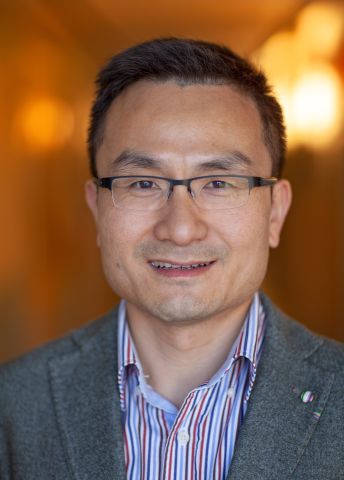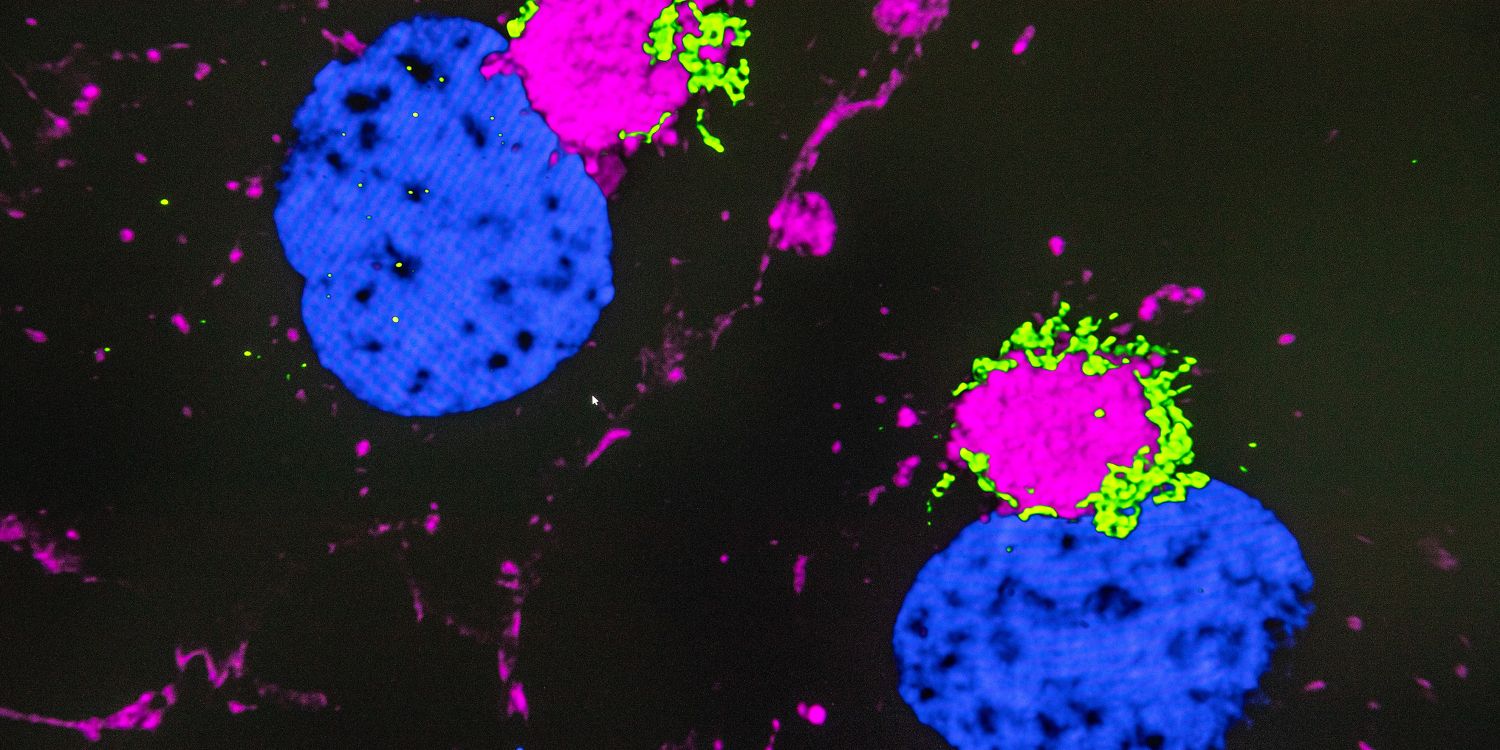
Yaowen Wu
Professor in Biochemistry
Wallenberg Academy Fellow prolongation grant 2022
Institution:
Umeå University
Research field:
How do cells recycle?


Wallenberg Academy Fellow prolongation grant 2022
Institution:
Umeå University
Research field:
How do cells recycle?
When cells are hungry, stressed or invaded by pathogens, they start eating some components selectively . They form particles with double membrane structures, known as autophagosomes, which start looking inside the cell for an appetizing meal.
Yaowen Wu is researching on autophagy. From Greek, the word means “self-eating”, and describes the way the cells clean up their own waste products. Yaowen Wu links it to recycling in human society, where waste is processed and turned into new products that can be used.
“If we simply gathered together huge piles of trash, society would turn into a tip. The same applies to our cells. Failure to properly dispose of waste products can lead to Alzheimer’s, cancer and infections.
Yaowen Wu is attempting to understand how the mechanisms help to keep cells healthy, and what happens when they start to play up.
“Relatively little is known about molecular mechanisms of autophagy. Despite our knowledge of genes involved in autophagy, full understanding for the occurrence of autophagosomes remains to be established. We are trying to develop new methods to study the process,” he explains.
When the autophagosome is formed, it fuses with the lysosome, the cell’s recycling station, where the contents are broken down by enzymes. Building blocks are created during this process, which the cell can re-use to make new proteins.
The scientists who discovered the genes involved in autophagy received the Nobel Prize in physiology or medicine in 2016, and it would have been quite natural for Yaowen Wu to use genetically modified organisms in his research. Instead, he has developed new chemical tools.
“Genetic modification could lead to cellular adaption. Since self-degradation is a dynamic process and happens in different locations in the cell, we want to understand phenomena that are difficult to capture in time and space.”
Yaowen Wu has created a kind of switch, that is capable of turning the activity in the proteins that are central to autophagosome function on and off. The process could also be controlled by light.
“We expose a specific cell or tissue sample to light, and compare it to parts that are not lit. This gives us a high level of precision.”
The aim of the study is to learn about autophagosome formation in the cell, with a view to developing targeted therapies for various diseases. Preclinical studies are already under way, with potentially positive implications for the treatment of cancer and neurological diseases.
“A more thorough understanding of autophagy may also result in the development of new antibiotics.”
Yaowen Wu grew up in Jiangxi province in southern China, and received a master’s in chemistry in Beijing. Having completed his PhD studies at the Max Planck Institute in Dortmund, he took up a position at King’s College i London as a postdoctoral researcher in cell biology. On his return to the Max Planck Institute he was able to set up his own research team under the Otto Hahn program, named for a former Nobel laureate in chemistry.
“I’ve moved beyond chemistry, and work at the interface between chemistry and biology,” Yaowen Wu explains.
In 2015 he was invited to give a lecture by Christian Hedberg, a former colleague of Yaowen Wu at Max Planck Institute in Dortmund and now senior lecturer at Umeå University. And the following year he was nominated as Wallenberg Academy Fellow. After the appointment he moved north to set up a new research team in Umeå.
“The Wallenberg Academy Fellow program provides long-term funding, and a national network, enabling me to get to know researchers in other scientific fields throughout Sweden. All of them are young and dynamic. They are also at the forefront of research. It is an honor to be one of them.”
“I am truly honored to have been chosen as a Wallenberg Academy Fellow, and to have received such a generous research grant. You need funding to bring ideas to fruition.”
Yaowen Wu has begun a collaboration with Sun Nyunt Wai, a professor in microbial pathogenesis at Umeå University, to study how bacteria interfere with autophagy in host cells. He has also been discussing collaborations with researchers at KTH Royal Institute of Technology and Karolinska Institutet, both in Stockholm.
“I’ve only been in Sweden for a year, but I can already see that my research is making great strides. I think there are good prospects for further development,” he says.
Yaowen Wu and his family have adapted to their new life in Umeå. His wife is learning Swedish, and he is attending a beginner’s course run by the university. Both of their children, aged three and six, have started pre-school.
“My elder son now speaks Swedish really well. I think it’s interesting to learn a new language and a new culture.”
The Wu family is happy in Umeå. The town is not too large; all amenities are close by; people are kind.
“We survived the first winter. I think that the cold in Umeå is better than the rain in Dortmund in winter. We had a lot of fun with the snow,” Yaowen Wu recalls.
Text Carin Mannberg-Zackari
Translation Maxwell Arding
Photo Magnus Bergström